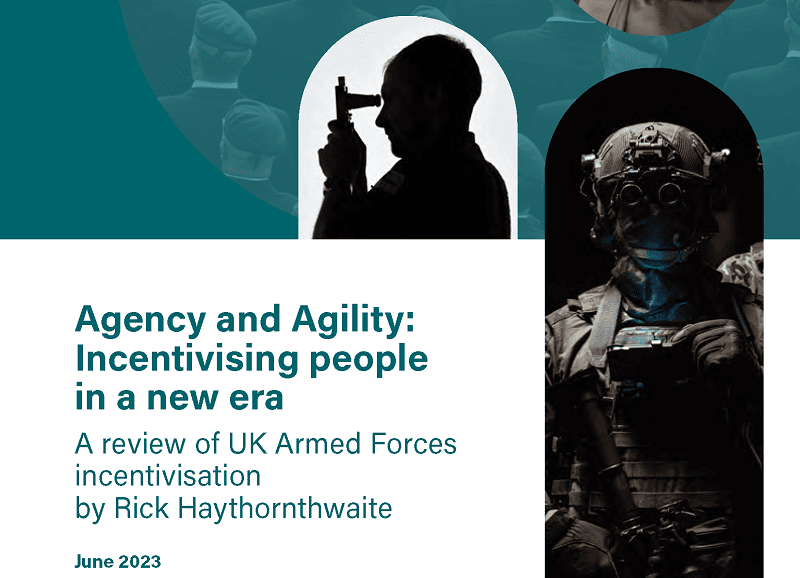
Many of you may have heard about a major review into the incentivisation of UK Armed Forces personnel, conducted by Rick Haythornthwaite, chair of the Ocado Group and non-executive director of the AA.
The Haythornthwaite Review into Armed Forces Incentivisation was conducted over 15 months. The final report was published in June and is available on the gov.uk website.
It has 67 recommendations designed to be taken together as a complete package and not ‘cherry picked’ as short-term expediencies.
On the pension, the report observed:
Given the comparatively little value placed on the pension by younger cohorts, there must be significant motivational impact and value for money to be gained by improving their understanding of what they really get.”
The report did not recommend any immediate changes to the AFPS. Instead it identified areas judged worthy of further examination. Recommendation 23 of 67 – the only one relating to the AFPS specifically – is set out below.
The MOD responded favourably to the review, and in placing people at the heart of their Defence Command Paper Refresh published in July, declared:
“In line with the Haythornthwaite Review, we will adopt a Total Reward Approach that links organisational objectives with skills and specific personnel goals. This approach… will recognise that the way we remunerate our people is often much more than their core salary. Our offer to our Service personnel – including accommodation, subsidised food, child support, medical and dental care, and pension – reflects a package that is worth significantly more than salary alone.”
So, what might all this mean for the AFPS? First, it is worth stating that the Society was consulted during the review process, providing another opportunity to influence policy thinking at the highest level.
Our submission was framed around the key tenets (pillars) of the AFPS, highlighting, inter alia, the fundamental role the pension plays in sustaining operationally effective Armed Forces, supporting the Services’ career structures and the mutually dependent supporting pillars – Defined Benefit; Government
Assured; Death and Ill Health Retirement Benefits; Supporting Transition to Civilian Life; and the so-called ‘non-contributory’ nature of the AFPS – noting that pension benefits are taken into account when determining pay scales.
The MOD has yet to set out how it intends to take forward the constituent parts of Recommendation 23, and many complex and interconnected factors (including legislative) will need to be carefully considered by the MOD over the coming months and indeed years.
We will remain very close to this work, supporting initiatives to improve AFPS understanding where appropriate (we do, after all, pedal the line “It Pays to Understand your Pension”) while highlighting the interdependencies and potential trade-offs/risks associated with the ther changes being considered.
We will keep you posted.




